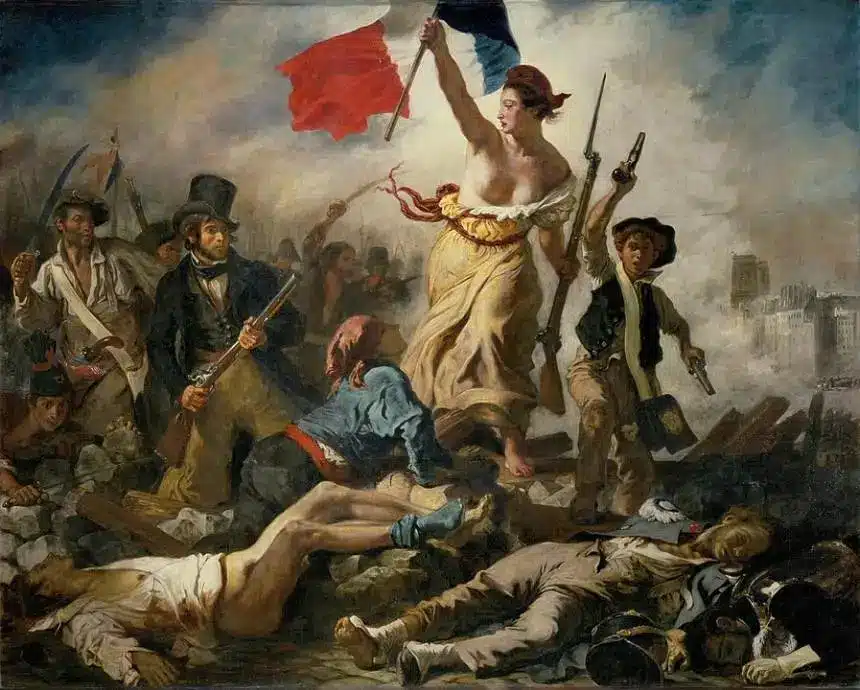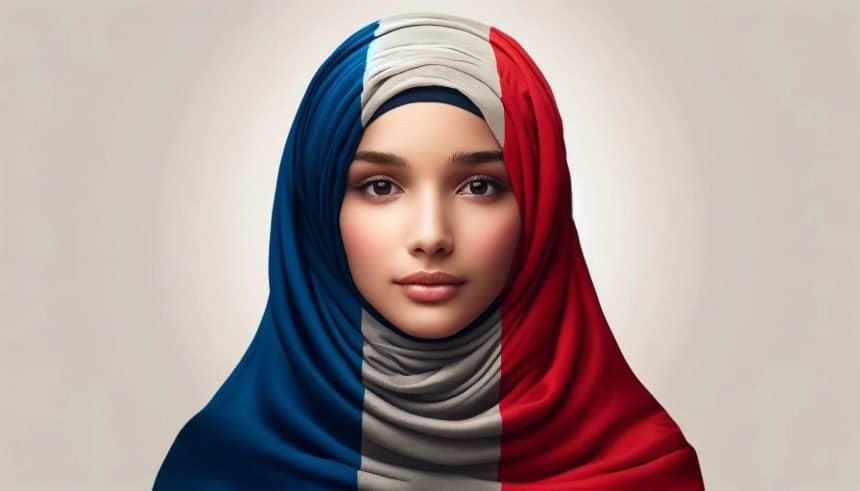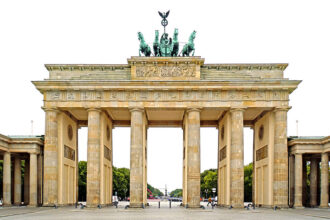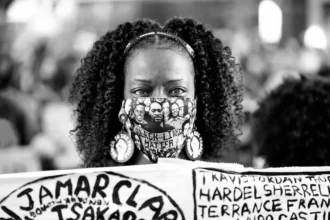Introduction
In my recent book “The Republic, Secularism, and Security: France versus the Burqa and the Niqab,” I explore the intricate landscape of French secularism, laïcité, at a critical juncture of the nation’s identity and societal cohesion. This book scrutinizes the French Republic’s enduring struggle to navigate its foundational secular principles amid the contemporary perceived challenges posed by the visibility of Islamic dress codes, notably the burqa and niqab. These garments have become focal points of national and international debates, serving as litmus tests for the Republic’s true commitment to its core values of liberty, equality, and fraternity within the context of a multicultural society.
The analysis explores the historical underpinnings of laïcité, tracing its evolution from a principle aimed at curtailing the Catholic Church’s influence to a comprehensive ethos governing the neutrality of the public sphere. This evolution is contextualized within France’s colonial legacy, immigration patterns, and the specter of terrorism, each shaping the national discourse on secularism, identity, and security. French history shaped the ideology of secularism and of public civil religion. Colonial legacy, immigration, fear of terrorism and security needs have led France to adopt the trinity of indivisibilité, sécurité, laïcité while paying homage to the traditional trinity of liberté, égalité, fraternité.
Laïcité has been the mechanism designed to curtail the influence of religious institutions and foster a unified French identity.
The contentious legislation banning the burqa and niqab is examined as a manifestation of the tensions between upholding secular unity and respecting individual freedoms. This legislation raises profound questions about the role of the state in regulating religious expressions and the implications for the Muslim community in France. By analyzing the arguments for and against the bans, the book aims to unravel the complex interplay between the desire to preserve a secular public space and the imperative to foster an egalitarian, tolerant society that respects diversity and ensures the rights of all citizens.

Laïcité as the Bedrock of the French Republic
My examination of French secularism, or laïcité, is positioned as a critical element in the fabric of the French Republic’s identity. This analysis underscores laïcité not merely as a policy of separating church and state but as a profound commitment to ensuring the neutrality of public spaces. This commitment ensures that all citizens engage as equals, undistinguished by religious symbols, reflecting a deep-seated national principle of unity and indivisibility. This stance, however, often sidelines the acknowledgment and integration of multicultural identities within the national ethos.
The veil is perceived as a symbol of the inferior status of the Muslim woman in France.
The book explores the historical contingencies—colonialism, waves of immigration, and the challenges posed by terrorism—that have shaped and continue to mold the contours of laïcité.
These elements have compelled France to confront and adapt its approach to secularism in response to an evolving societal landscape, marked significantly by the presence of Muslim communities and the challenges of integrating these communities within a secular republic.
A key issue has been the foulard. The French believed that the Algerians would oppose assimilation, so long as the women were subjugated. The veil was perceived as a symbol of the inferior status of the Algerian woman. Presently, the veil is perceived as a symbol of the inferior status of the Muslim woman in France. Some conceptions, or misconceptions, are hard to change.
Laïcité has been the mechanism designed to curtail the influence of religious institutions and foster a unified French identity, to its current role at the center of debates on national identity, security, and the integration of diverse cultures. Particularly, the discourse surrounding Islamic dress codes, such as the burqa and niqab, illustrates the tensions between maintaining secularism and embracing cultural diversity, prompting a re-evaluation of laïcité’s capacity to adapt to contemporary challenges.
Through this lens, the book contemplates the future of French secularism at a pivotal moment, as it strives to uphold the foundational values of the Republic while navigating the complexities of a pluralistic society. It questions whether laïcité can sustain its role as a pillar of French republicanism. This exploration aims to contribute to the broader dialogue on secularism’s role in modern democracies, offering insights into the delicate balance between unity and diversity, tradition and evolution, in the context of the French Republic.
The Veil Controversy: A Test of Republican Values
The legislative ban on the burqa and niqab represents a profound juncture in the French Republic, challenging the nation’s commitment to its foundational values of liberty, equality, and fraternity. This pivotal issue, deeply embedded in the discourse surrounding secularism, freedom, and identity, scrutinizes the core principles underpinning the French Republic at a moment when societal and cultural dynamics are rapidly evolving. The veil debate thus serves as a critical test for the Republic’s capacity to navigate the intricate relationship between assimilation, tolerance, and diversity recognition within its secular framework.
Paternalism that holds that the ban is for the women’s own good is a poor, coercive excuse.
An exploration of the ban’s intricacies reveals that it is more than a mere legal measure; it mirrors a broader societal debate on the nature and limits of laïcité. Advocates of the ban argue it is essential for maintaining the Republic as well as the secular character of public spaces, aiming to prevent male coercion and promote gender equality. They believe that such attire symbolizes the oppression of women, conflicting directly with the Republic’s fundamental values and highlighting a significant cultural and ethical tension within French society. This debate underscores the complex interplay between individual freedoms, secularism, and societal norms.
Opponents of the ban view it as an infringement on individual freedoms, particularly the freedom to express one’s religious beliefs openly. They argue that this legislation leads to the marginalization and stigmatization of the Muslim community, exacerbating tensions within France’s multicultural society. The ban on the burqa and the niqab is discriminatory; some argue it is racist, a manifestation of Islamophobia. I take sides in this debate, refuting one-for-one the arguments for the ban and arguing that they are prejudicial, lack substantive evidence, and at times nonsensical.
It is argued that the burqa and niqab ban is neither just nor reasonable in the eyes of the women and girls who wish to wear the Muslim garb as well as in the eyes of their families and community, and that paternalism that holds that the ban is for the women’s own good is a poor, coercive excuse. Claims for paternalistic coercion to protect adult women from their own culture when they do not ask for protection are not sufficiently reasonable to receive vindication.
In France, the discourse revolved in the main around the need for a united Republic, the fear of disintegration, and the urgent and growing need for sécurité. The value of indivisibilité has been accentuated. In the past, the objection was to clericalism that might undermine the unity of the nation that makes the Republic strong. Nowadays, the same objection to the Muslim dress is motivated by the fear of radical and political Islam that might disintegrate the nation.
Exploring this controversy sheds light on the broader French identity crisis, examining the boundaries of tolerance and the Republican model’s ability to accommodate diverse aspects of personal freedom, religious diversity, and societal cohesion. This analysis reveals that the debate extends beyond the specifics of the veil ban, touching on universal themes of freedom, dignity, and the state’s role in balancing collective norms with individual rights.
Integrating Multiculturalism within a Secular Framework
The integration of cultures within France’s secular framework presents a formidable challenge. This challenge is not merely administrative but strikes at the philosophical core of what it means to be French, questioning the essence of national identity, belonging, and citizenship. With the increasing visibility of France’s Muslim population and the diversity this brings, the Republic finds itself at a crucial point of social transformation. The task now is to reconcile the traditional model of assimilation, which has long prioritized a uniform national culture, with the lived reality of a pluralistic society.
Achieving integration demands a recalibration of the Republic’s foundational principles toward a more nuanced understanding of identity and belonging.
This reconciliation requires a profound examination of the secular values that have defined the Republic, alongside a willingness to embrace the multicultural diversity that modern France embodies. Such an endeavor is complex, navigating through prejudices as well as entrenched perceptions of national identity and the public role of religion.
It is argued that achieving integration demands a recalibration of the Republic’s foundational principles toward a more nuanced understanding of identity and belonging. It also demands listening to diverse views and conceptions of the good, some of which are illiberal. Recalibration involves collective efforts to redefine citizenship in a way that respects both the heritage of the Republic and the individual stories that contribute to the nation’s richness.
It requires balancing between individual rights and diverse group rights. Advocated is a path of dialogue, empathy, and mutual respect, aiming to find a modus vivendi between different beliefs, religious and secular. This approach underscores the necessity of moving beyond mere coexistence towards a deeper, more meaningful integration of diverse identities within the French Republic.
Conclusion
In envisioning a future where France aligns its enduring Republican values with the complex diversity of its population, the nation is on the verge of significant transformation. This vision demands a re-evaluation of the Republic and multiculturalism, moving to actively celebrating diversity and pluralism. Such a shift requires a rejuvenation of the core values of liberty, equality, and fraternity, seen through an inclusive lens that ensures these principles are vibrant and active, not just historic ideals or, worse, dead dogma.
In my 2021 book, Just, Reasonable Multiculturalism I argued that liberalism and multiculturalism are reconcilable. The path to a more inclusively multicultural France involves cultivating open, empathetic conversations that bridge cultural divides, affirm our shared humanity, and recognize the value that diverse cultures and beliefs add to the myriad national fabric.
These discussions need to be grounded in a real commitment to understanding and a readiness to address the barriers that have traditionally sidelined minority groups. Furthermore, this inclusive approach must translate into tangible actions and policies that encourage tolerance, participation, fairness, and respect across society. This includes educational reforms, legislative changes, and community initiatives that mirror and celebrate France’s diversity, fostering a stronger sense of belonging and acceptance among all its people.
If and when France moves towards this new paradigm, it would then acknowledge that the Republic’s strength does not lie in homogeneity but in its capacity to weave together diverse voices, stories, aspirations, and, indeed, dresses.









